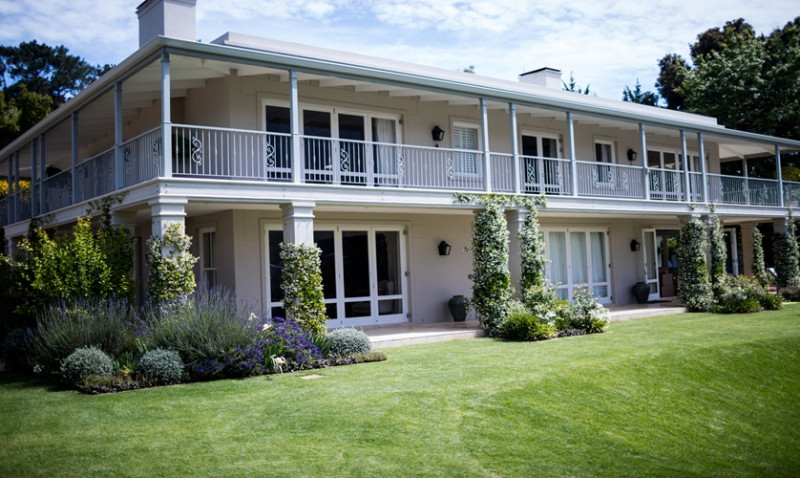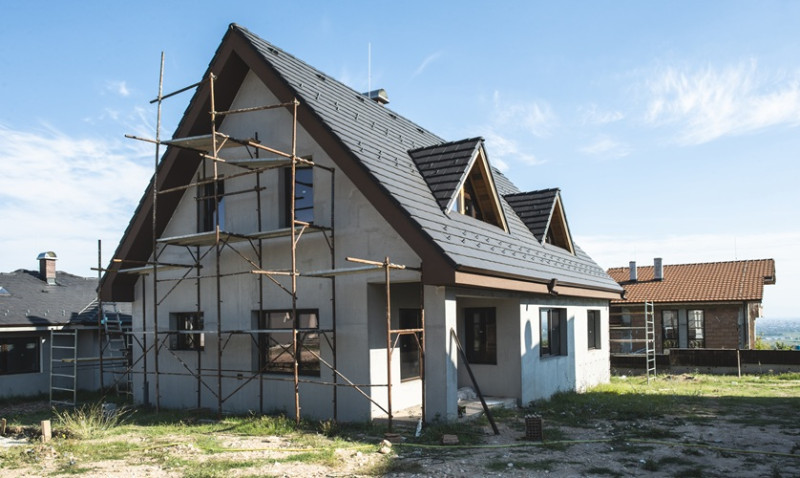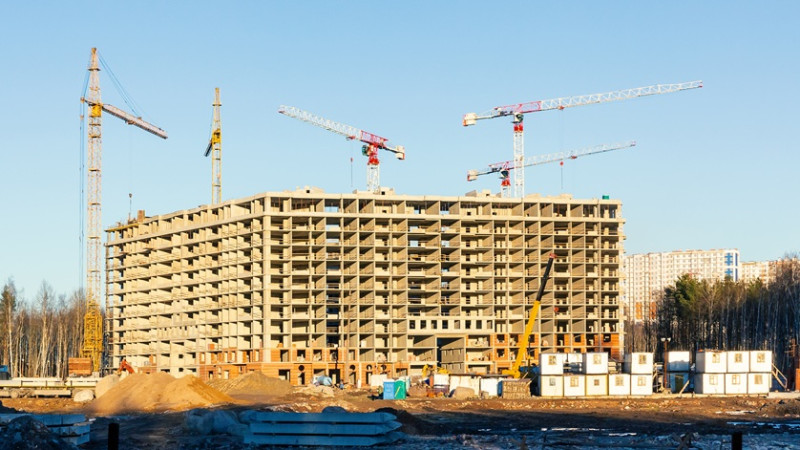
Finding the right builder for your project can make the difference between a dream home and a renovation nightmare. Whether you're building from scratch, adding an extension, or undertaking a major renovation, choosing the right professional is essential. At Maiga Homes, we're committed to helping homeowners, designers, and professionals across the UK navigate the selection process with confidence.
Too often, homeowners choose builders based on availability or a low quote. But don't be fooled — building or renovating a home is complex, and the right experience, communication, and credentials matter. Below are the 12 essential questions you need to ask before signing any contracts.
1. Are You Properly Licensed and Insured?
The very first thing to ask any builder is to confirm their license and insurance status. In the UK, while not every builder requires a license, many types of building work — especially structural or electrical — do require registration with professional bodies.
Ensure your builder is a member of organisations like the Federation of Master Builders (FMB) or TrustMark. These accreditations mean the builder adheres to industry standards and codes of conduct. Ask for verifiable documentation and don’t be afraid to follow up with the organisation directly.
Insurance is equally important. Builders should hold public liability insurance and employer’s liability insurance. These protect all parties in case of damage or injury onsite. Without insurance, you could become liable for costly accidents or damages — a risk no homeowner can afford.
2. Can I See Your Previous Work?
A good builder will be proud to showcase previous projects. Ask to see a portfolio or, even better, arrange visits to ongoing or completed sites.
Look at the quality of finishes, overall design, and attention to detail. These projects should closely align with the scale and type of construction you’re considering. If they’ve built modern flats and you’re planning a Victorian kitchen renovation, find someone more specialised.
Ask for before-and-after images, testimonials, and references. Follow up with past clients and ask about their experiences, any unexpected issues, and how the builder handled them. Transparency from both builder and former clients is a positive sign.
3. What Experience Do You Have With My Type of Project?
All builders are not created equally. Some may specialise in renovations of period properties, while others focus on new builds, loft conversions, or commercial fit-outs. You need a builder with experience in the precise type of project you have in mind.
If you’re hiring for a listed property conversion, you need someone well-versed in working with conservation regulations and heritage materials. For contemporary builds, you’ll want someone familiar with modern methods and sustainable building standards.
Experience doesn’t just mean years in the trade — it means relevant experience to your needs. This can drastically affect the outcome of your project.
4. Who Will Be Managing the Work on Site?
It’s crucial to know who will be managing your build day to day. Smaller companies may have the owner or lead builder on site regularly. On the other hand, larger companies will have site managers or foremen overseeing multiple trades.
Ask who your point of contact will be for daily updates, problem-solving, and inspections. Communication is key during home construction — you need someone that is accessible, proactive, and organised.
Avoid confusion by specifically asking whether the person you’re interviewing is also the one managing your project. Builders can sometimes outsource or subcontract tasks, so clarity about the chain of command is essential.
5. What Is Your Estimated Timeline?
Every building project should come with a proposed timeline, showing key stages of completion. A trustworthy builder knows how long the work should take and will be honest about their availability and timeframe.
A vague schedule or unrealistic deadlines are red flags. Building or renovations often take several weeks to months — be cautious of anyone promising faster than average results without clear reasoning.
Inquire about possible delays, including weather, supply chain issues, or workforce availability. A competent builder will factor this into a realistic, flexible schedule, and keep you updated regularly as the job progresses.
6. Can I Get a Detailed Quote?
Ask for a comprehensive, written quote that breaks down costs for each component of the work, such as materials, labour, waste removal, and planning permissions.
Getting a lump sum without details may leave you vulnerable to hidden charges later. It also prevents any comparative analysis between builders.
If the quote seems unusually low, ask why. It might exclude essential materials or services. On the flip side, a higher quote may include better finishes or services. Detailed quotes also give you leverage for negotiating prices or reimbursing overages.
7. What Payment Schedule Do You Require?
Always understand how and when you’ll be expected to pay. Reputable builders do not ask for the full amount upfront. Instead, they should offer a payment schedule linked to completion stages such as foundation, roofing, and finishing.
Confirm whether deposits are refundable and ensure payment methods leave you with a paper trail. Logic-based payment structures protect your investment and align incentives for everyone involved.
A typical payment schedule might look something like this:
| Project Stage | % of Total Cost |
|---|---|
| Deposit / Mobilisation | 10% |
| Start of Construction | 20% |
| Halfway Mark | 30% |
| After Completion | 30% |
| Snagging / Final Inspection | 10% |
8. Will I Receive a Contract?
A written contract protects both parties and should outline project scope, materials, costs, responsibilities, schedules, and warranty information. No reputable builder will begin work without a legally binding agreement.
Ask to review your builder’s standard contract early in the discussion phase. Make sure it includes a clause for dispute resolution, and clarify what happens in instances of delays, cancellations, or changes in scope.
Don’t be afraid to consult with a solicitor about the contract. Building work is a large investment — protect yourself accordingly.
9. How Will You Handle Building Regulations and Permits?
In the UK, most building works must comply with Building Regulations and may require planning permission, depending on the scale and location.
Your builder should be knowledgeable about the required certifications and inspections, and ideally will handle all submissions and communications with the local council on your behalf.
Ensure your builder provides you with completion certificates at the end of construction. Without them, you may face obstacles when selling your home or applying for insurance in the future.
10. What Is Your Approach to Health and Safety?
A builder’s attitude to site safety reflects their professionalism. Especially if the work is happening while you're still living on-site, health and safety must be treated seriously.
Ask about risk assessments, scaffolding plans, tools and equipment management, and protective coverings for your home. Builders should comply with the Construction (Design and Management) Regulations 2015 (CDM), which outline protocols for health and safety in construction operations in the UK.
They should provide appropriate signage, ensure safe working practices, and minimise hazards where children or pets are present.
11. Do You Use Subcontractors?
Most builders rely on subcontractors for special trades such as plumbing, electrical, roofing, or plastering. This is standard industry practice but it’s important to know who will be on-site and how they are vetted.
Ask whether subcontractors are regular, trusted partners or if they’re hired ad hoc. Consistency in subcontractor teams is a good sign, as it means collaboration and communication are already established.
You should also confirm whether subcontracted tradespeople are certified — for example, NICEIC registered electricians or Gas Safe registered plumbers in the UK.
12. What Warranty or Aftercare Do You Offer?
Even the best construction work can encounter issues after completion. It’s important that your builder offers a warranty or defect liability period.
This means if leaks, cracks, or structural issues arise within a given time (typically 6-12 months or longer), the builder will return to fix them at no extra charge.
Reputable builders also partner with insurance-backed warranty schemes like NHBC or LABC Warranty to give added peace of mind. Make sure this is clearly covered in your contract.
Final Thoughts
Choosing the right builder is a crucial step in any construction or renovation journey. These 12 questions are designed to help you vet your options and find a professional who can deliver results you’ll love — on time, on budget, and without unnecessary stress.
At Maiga Homes, we believe in empowering UK homeowners, DIY enthusiasts, and trade professionals with the right knowledge. If you're planning a project and want trusted advice or a builder referral, our experienced team is here to help. Drop us a message or explore our knowledge base for more insights.





